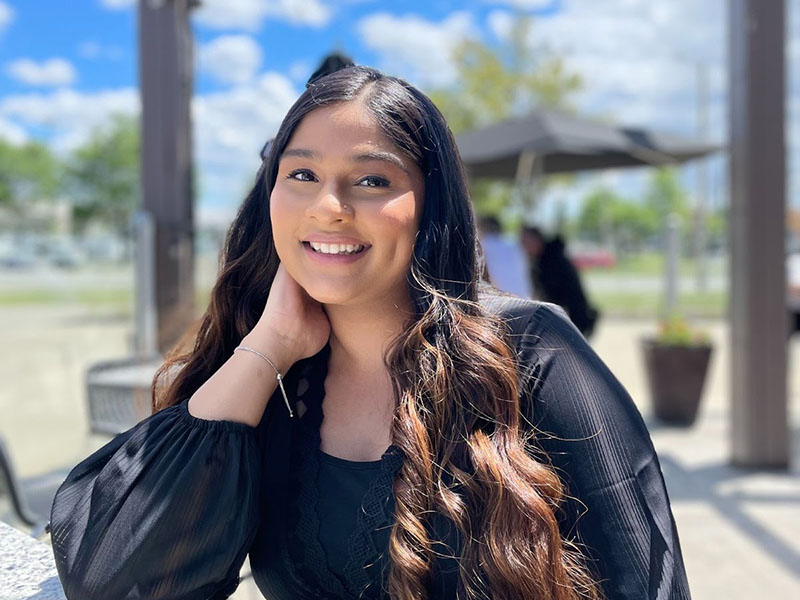Early Childhood Studies - BA
Is it for you?
This program provides in-depth knowledge of child development from birth through age eight. You’ll study physiological, psychological and social perspectives and develop understanding and skills pertaining to family support, early childhood education, arts, literacy and disabilities in young children.
Field education each year, international placement and research opportunities and the chance to apply to a consecutive BEd program with York University will prepare you to work with children, families and professionals in a variety of settings.
Program info
Faculty:
Faculty of Community Services
Program format(s):
Full time: 4 Year
Direct Entry to Third Year
Part time: Direct Entry to Third Year
Degree:
Bachelor of Arts
Grade range:
Low 70s1
Requirements:
Grades-Only
Experiential learning:
Mandatory field placements

Tuition and fees range 2024-2025
For detailed fees information, visit tuition and fees by program.
Full-time format:
Ontario students: $7,340 - $7,813
Out-of-province students: $8,402 - $9,101
International students: $35,063 - $36,374
Part-time format (one to eight or more courses)
Ontario students fees range: $987 - $5,485
Out-of-province students fees range: $1,107 - $6,442
International students fees range: $3,684 - $27,058
First-year courses
Here is a preview of first-year courses based on the available undergraduate calendar information.
Your future
You’ll be prepared to work with children, families and professionals in a wide range of settings including:
- Kindergarten classrooms
- Child care centres
- Early intervention services
- Family resource centres
- Children’s hospitals
- Multi-service agencies
- Family support work
- Foster support work
- Early childhood education settings
- Professional studies with a two-year bachelor of education, or pursue graduate studies in related fields such as early childhood studies, speech and language pathology, policy, and paediatric psycho-social care
Thinking of applying? Make sure the program is still accepting applications.

Ontario Secondary School Diploma (OSSD) or equivalent with a minimum of six Grade 12 U or M courses including the following program-specific requirements.
Typically, a minimum overall average of 70% establishes eligibility for admission consideration; subject to competition individual programs may require higher prerequisite grades and/or higher overall averages:
- English/anglais (ENG4U/EAE4U preferred)
- One grade 11 U or M or Grade 12 U or M mathematics or science course (one of MCF3M, MCR3U, SCH3U, SPH3U, SBI3U, SNC3M, MHF4U, MCV4U, MDM4U, PSE4U/PSK4U, SBI4U, SCH4U, SPH4U, SES4U, SNC4M, SVN3M)
- Note: the minimum grade(s) required in the subject prerequisites (normally in the 70% range) will be determined subject to competition
Academic admission requirements for all other applicants are available at:
Admission Requirements.
- Early Childhood Education Diploma from a public Ontario college with a minimum 3.0/B/70% cumulative GPA
PLUS - All applicants must have completed three lower-level one-term (or equivalent) liberal studies courses at the university level with minimum B- (70%) grades. Please note the following liberal studies restrictions:
- College General Education courses cannot be used as substitutions for university-level liberal studies courses
- One of the lower-level liberal studies courses must be an English subject
- These courses cannot be part of the ECE diploma studies
- These courses cannot be an introductory-level psychology or sociology
- Note: Graduates of two-year Early Childhood Education diploma programs from outside Ontario will be assessed on an individual basis

Student spotlight
Undergraduate student's passionate about children's rights
"I would like to see an increase in children’s rights and the importance of adopting a child rights perspective. Internationally, I would like to emphasize the importance of youth voice and participation in advocacy efforts."
- Sachi Shukul, Early Childhood Studies
Read more: Student spotlight: Sachi Shukul


More ways to explore TMU

Notes:
- Actual minimum grade ranges required for fall 2024 admission/wait list consideration will be determined based on grades and qualifications presented by the applicant pool as they become available. Required grade ranges may fluctuate from year to year (up or down) as a result of competition. Applicants not educated in Ontario may present the equivalent of the Ontario requirements. TMU reserves the right to determine equivalency at its sole discretion.
Disclaimer:
While every effort is made to ensure accuracy on this site, in the event of a discrepancy, TMU's current Undergraduate Calendar is the official reference.


